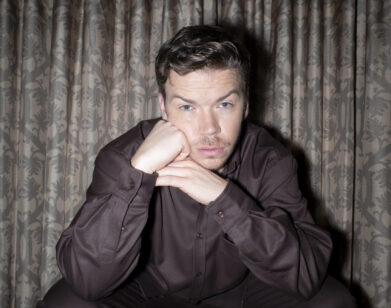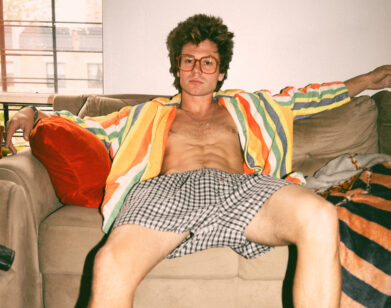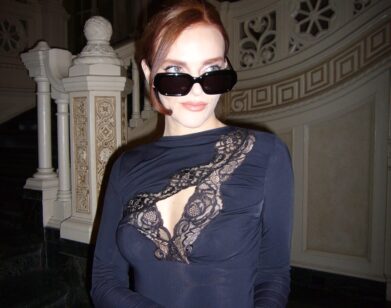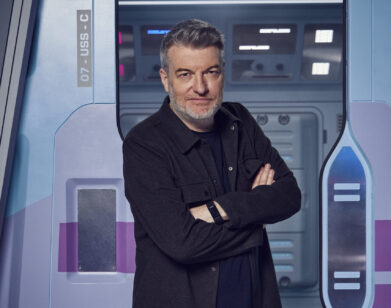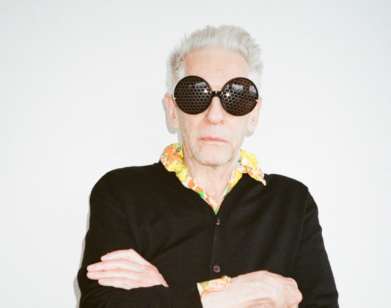Rebels with an Effect
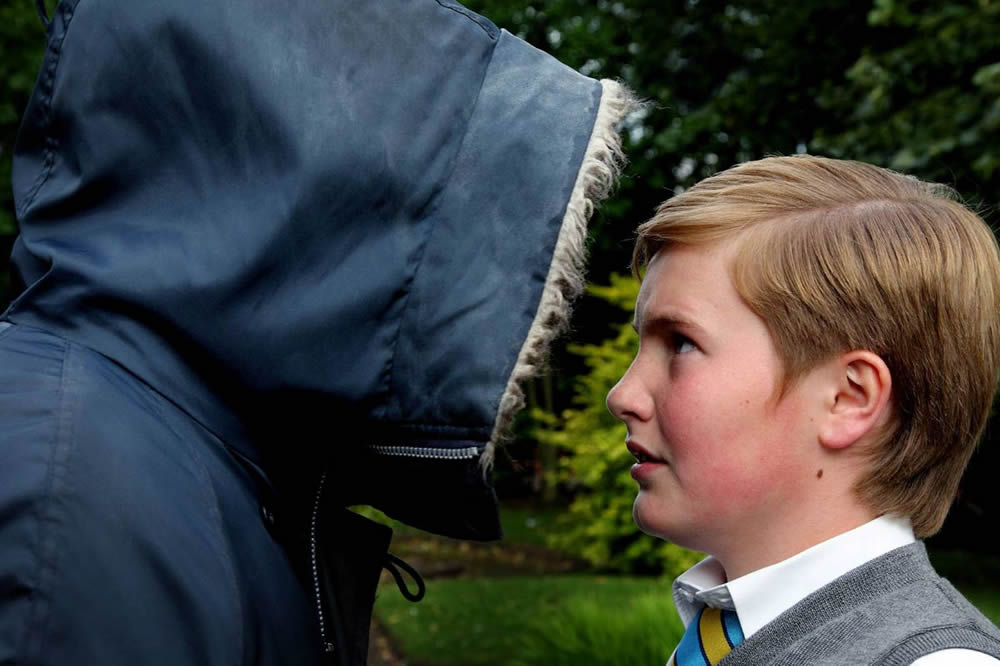
GREGG FORREST (RIGHT) AS THE YOUNG JOHN MCGILL IN NEDS.
It’s no wonder troubled youth are a familiar conceit in film. Their misguided and scrappy survivalist angst is both infinite and temporary. We root for them because their violent frustrations and foolish choices are the outcome of odds being stacked so high against them, but most of all, because that period between childhood and adulthood is totally mystifying. In acclaimed actor and director (My Name is Joe, The Magdalene Sisters) Peter Mullan’s newest film, NEDS (an acronym for Non-Educated Delinquents), this duality is palpable: cutting class to go drinking on a merry-go-round, school dances followed by knife fights, asleep in your bunk bed and then suddenly homeless.
Set in 1970s Glasgow, the film tells the story of John McGill (played as a child and a teenager by newcomers Gregg Forrest and Conor McCarron), a smart, perceptive boy who shows considerable promise in school. But for reasons related to his older brother Benny’s wrongdoings and drunken bullying father (played by Mullan himself), and especially the lawless, gritty world he cannot break away from, John’s downward spiral seems predestined.
DURGA CHEW-BOSE: You probably get this question a lot, but is John McGill based on your teenage years? Is NEDS at all autobiographical?
PETER MULLAN: It’s not autobiographical. Certain elements did happen. I didn’t go as dark as John does in the film. I think with autobiographical material, you’re obliged to remain reasonably faithful to what actually happened, even though it’s from your perspective. And I take way too many liberties, so it’s fiction. Certain instances did happen. I was top of the primary school and I was told that when I went to the big school, this guy was going to get me.
CHEW-BOSE: Like when the bully, Canta, threatened John.
MULLAN: Exactly. And my brother did sort it out. The first part’s pretty much true. I found myself in school, and to my amazement they put me in the second class, and they told me in no uncertain terms that it was because of my brother. So I remember at the time I felt a terrible sense of injustice, because that’s him and that’s not me. I’m not like that.
I remember also how bizarre it was to have someone who in the street was a powerful figure that could be of benefit to you, whereas in school, the opposite applied; he became a hindrance, something to be embarrassed about or even deny. So there was always that kind of duality. On the one hand, I was quite pleased I had someone in the street, but in the establishment, I was to be tarred with the same brush. When I was writing the film, that really came back to me. As you do at that age anyway, you’re looking for injustice. At that age, it doesn’t matter what the hell happens to you, you’re looking for it, and you’re begging for it, and you hope to God that your mum or your dad does anything that can favor your sister, or favor your brother, just so you can claim injustice.
CHEW-BOSE: I was going to say, in terms of NEDS‘ marrow—adolescence and those very pivotal years—the film gets very dark. What initially interested you about those critical teenage choices and hardships?
MULLAN: I think, as we all know, society can be very unforgiving when you’re a certain age. When you’re a little kid, you’re expected to be naughty, and your parents and society at large gives you more leeway. As you approach adulthood, that leeway becomes far more restricted—in fact you hardly get any. It becomes doubly difficult when you’re a teenager. On the one hand, you are completely mixed up for a whole host of reasons, but if and when you go out of society’s path, the likelihood of retracing your steps to a more innocent time is very difficult. Society in the ’70s was very punitive, and I think we went back to those kinds of days. I think we’re less forgiving now of the mistakes and kind of attitude, if you like, of teenagers. We’ve gone back to that old school where we treat teenagers tough, and in my experience it doesn’t work. I don’t have a simple answer to it, there isn’t one.
CHEW-BOSE: It’s also related to questions of class and that “can’t beat them, join them” attitude, and how impossible it sometimes feel to escape certain inevitabilities.
MULLAN: Where it gets complex is that it’s too easy to blame society, that’s certainly not the case. But at the same time, society has its place. I think it would have been too simplistic to suggest that it’s up to society to change, but there is no doubt that society, for me, if you’re wanting to play the blame game, society is at large to blame. Between poverty, low expectations, and domestic and street violence, it’s hardly surprising that kids will take the particular path that kids take. And I think the biggest one, and most pertinent to the States, is low expectations. Social mobility here, as it is in the UK, has become far harder than it was 30, 40 years ago. And the media has a lot to answer for in that respect. In the UK, the media is more than happy to portray working-class kids in a nihilistic kind of way. And even NEDS has been accused of doing the same thing; obviously I would disagree.
CHEW-BOSE: The performances are amazing—yours included, totally terrifying—and of course Conor’s as well. How did you get these haunting and self-assured performances from first-timers? I assume your experience as an actor was vital.
MULLAN: Well, when you’re directing youngsters with no acting experience, you work exactly as you do with professionals. What you have to do on a film set is create an environment where everybody feels comfortable and confident. You try and make the camera as discreet as you possibly can. Get it away from their face and long-lens it. The thing that will freak most people out—right now if I turned that lamp on and put it right in your face and then I pointed at you, you’d freak out. It’s not a nice feeling.
CHEW-BOSE: I bet.
MULLAN: Even if you’re the biggest diva known to man, it’s still not a nice feeling. What the diva does is turns it in on him or herself. When he or she turns on, it’s a defense mechanism. With young actors, once you create that environment and they know that you’re not going to berate them, humiliate them, once they become confident—which you literally do in about an hour—once they realize this is okay, then you’d be amazed what people can do. There has to be a modicum of talent and they have to be reasonably close to the character…
CHEW-BOSE: So, for instance, Wee-T’s character—who I loved—is the actor also a sort of rough-and-tumble jokester?
MULLAN: He is and he isn’t. Chris [Wallace], who plays Wee-T, has a natural ebullience. I mean, he’s quite gregarious. But he’s a straight-A student. He’s a great, great painter. So we tapped in, with someone like Chris, that he likes to laugh. You just basically take that element and give them the script and bits they don’t like you throw away and the bits they can improvise—most of them stick to the script, though.
CHEW-BOSE: Canta’s transformation was…
MULLAN: Yeah, yeah. We auditioned a lot of lads. And a lot of them could play Canta the bully, but what they couldn’t do was play Canta, brain-damaged, and they couldn’t play Canta the ex-bully. So he has three distinct stages, so we gave it to Gary [Milligan], who again is nothing like his character. Gary is very gentle, he’s not in any shape or form aggressive. But he also knew how to play, “I’m not of this world anymore, I don’t want to fight anymore. I’ve changed.” And what Conor does as a young actor is nothing I did—I just got lucky. The only skill you have as director when you get someone like Conor is don’t mess around with it. He’s got a stillness, a lovely quiet intelligence to him.
CHEW-BOSE: The violence in NEDS, all staged of course, is a product of a fight club that you created for the film, right?
MULLAN: When we introduced the fight club initially, it was to ensure that no one got hurt in the process. I can’t stand it when anyone gets hurt on a film set.
CHEW-BOSE: So what were the rules?
MULLAN: The only rule was that you cannot hurt anyone; there could be no physical contact. So it was a very wussy kind of fight club. It was the opposite of Fight Club. So basically, they learned a more advanced version of stage fighting—it just had to look authentic What I had to impress upon the lads was that if they do connect physically, we couldn’t use it and they would be out of the film. I showed them a film I had made years ago where contact was actually made, and another scene where no contact was made, and the one that looked more authentic was the one with no contact. All cinema is a cheat, and real physical contact is less authentic-looking than no physical contact. That’s one of those weird camera things. It’s the same as some people, for whatever reason, look far more beautiful on camera than they do off camera, and vice versa. I’ve seen so many beautiful-looking men and women, and you put the camera on, and it does nothing. I don’t know what it is, particularly a movie camera, looks right down your lens, which is obviously your eyes. It goes right down in your soul and if someone has a soul, doesn’t necessarily have to be a nice soul, if it’s bubbling and full of things, no matter how ordinary you may look, the camera gets something out.
CHEW-BOSE: And did both gangs get along off-camera and after production?
MULLAN: Yeah, they got along great. They’re all really, really friendly. They’ve all been buddies ever since we made the film. And I’m pleased about that more than anything.
NEDS SCREENS TOMORROW AT CLEARVIEW CINEMAS CHELSEA AS PART OF THE TRIBECA FILM FESTIVAL. FOR MORE INFORMATION ABOUT THE FILM, VISIT THE FESTIVAL’S WEBSITE.

